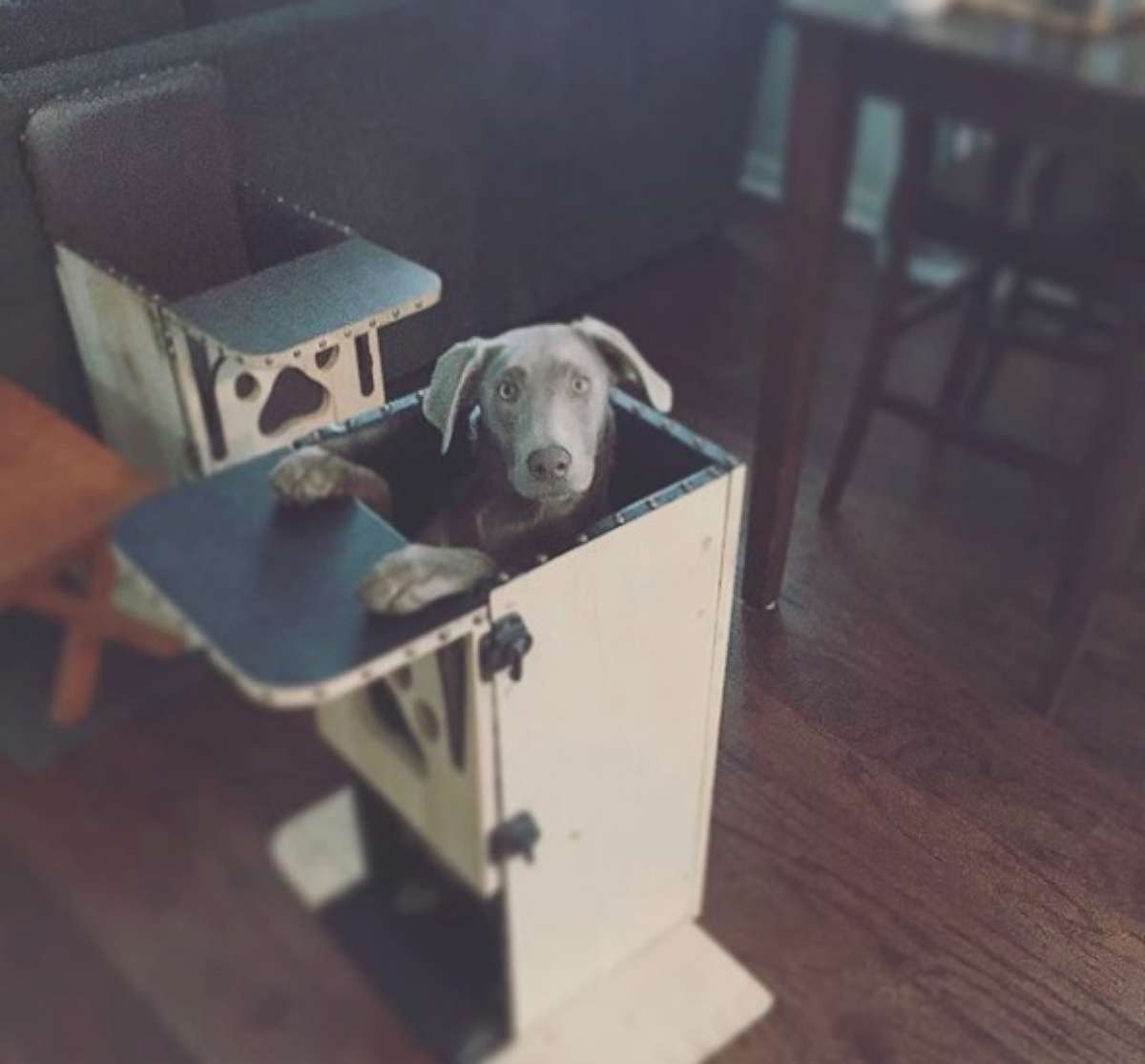Dog's rare condition requires her to eat meals in special highchair
"I can’t imagine life without her by my side all the time," Cori Sullivan said.
— -- A Michigan dog with an esophagus disorder sits in a highchair during her mealtimes.
Tink, a 1-year-old silver Labrador, was diagnosed in 2016 with megaesophagus (MegaE or ME), a condition that causes food to become stuck in her esophagus.
So she has been eating all her meals in a Bailey chair since she was 10 weeks old. It's a special highchair that keeps her vertical and allows the food to move into her stomach so it doesn't become stuck, Tink's owner, Tom Sullivan, 31, of Grand Rapids, Michigan, told ABC News.
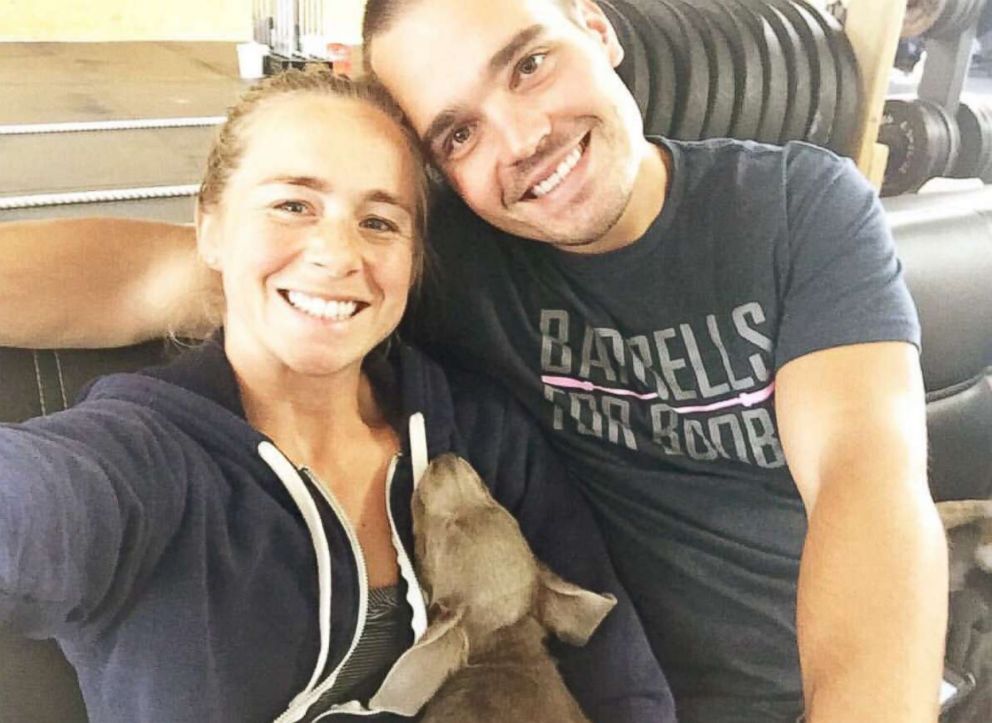
Sullivan said his lovable Lab even has been getting burped like a baby since her diagnosis at 8 weeks old.
"The vet did not know much about the disease but shared the routine used for caring, along with the alternative to humane euthanization," he said. "We knew that we were too attached, and we decided to give her our all to live a normal life. Other vets also implied that many puppies with MegaE are euthanized because the prognosis is so poor for survival."
Sullivan said he and his wife, Cori Sullivan, 30, saw specialists at Michigan State University, who donated Tink's first Bailey chair.
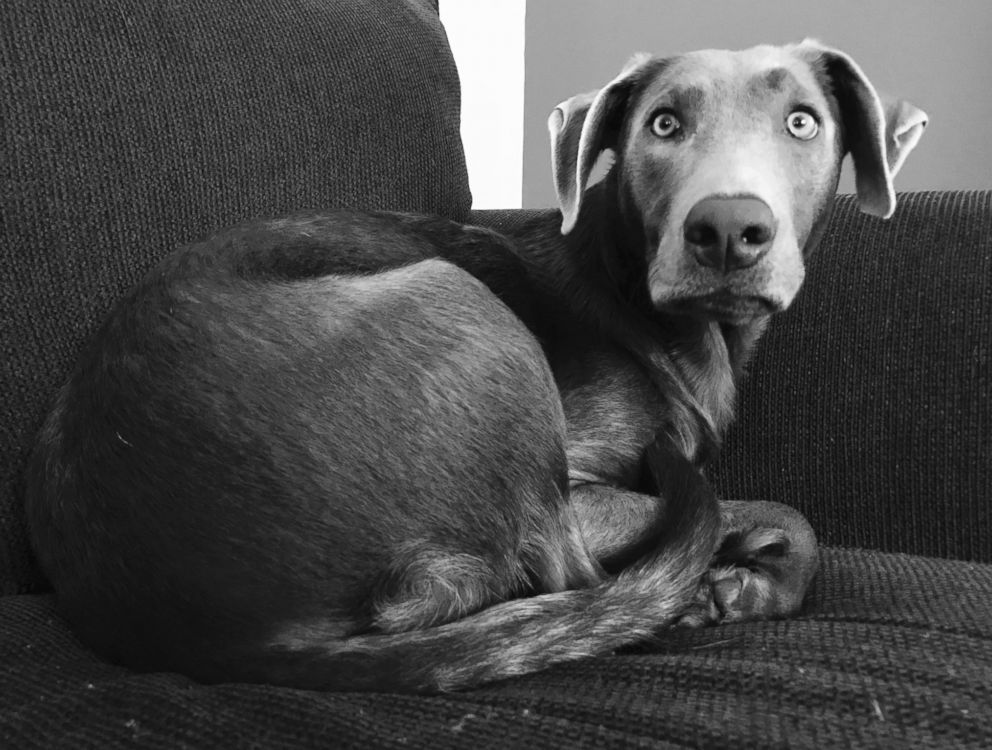
Tink eats in her chair about four times a day, then naps in it for another 20 minutes to help make sure the food goes down, according to Sullivan.
"What ends up happening is the animal might be euthanized because the owners can't handle or can't dedicate the time and effort it takes, or [the animals] suffer from malnutrition," Tink's veterinarian, Jeremy Hutchinson of Weisner Innis & Schoen, told a local television station.
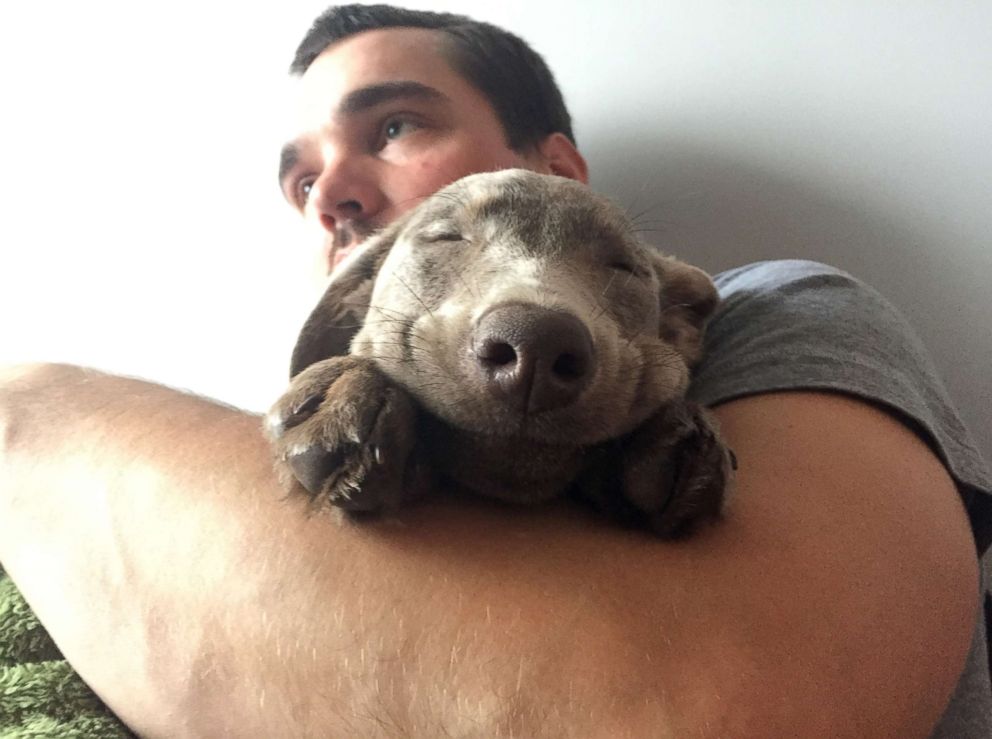
Hutchinson did not immediately respond to ABC News' request for comment.
Tom Sullivan said, "When other vets suggested euthanization, [Hutchinson] never spoke a hint towards it. Most vets are so unfamiliar with the disease that they are not comfortable with working with a dog with MegaE. We were fortunate in finding Dr. Hutchinson, and his dedication is huge in Tink's success."
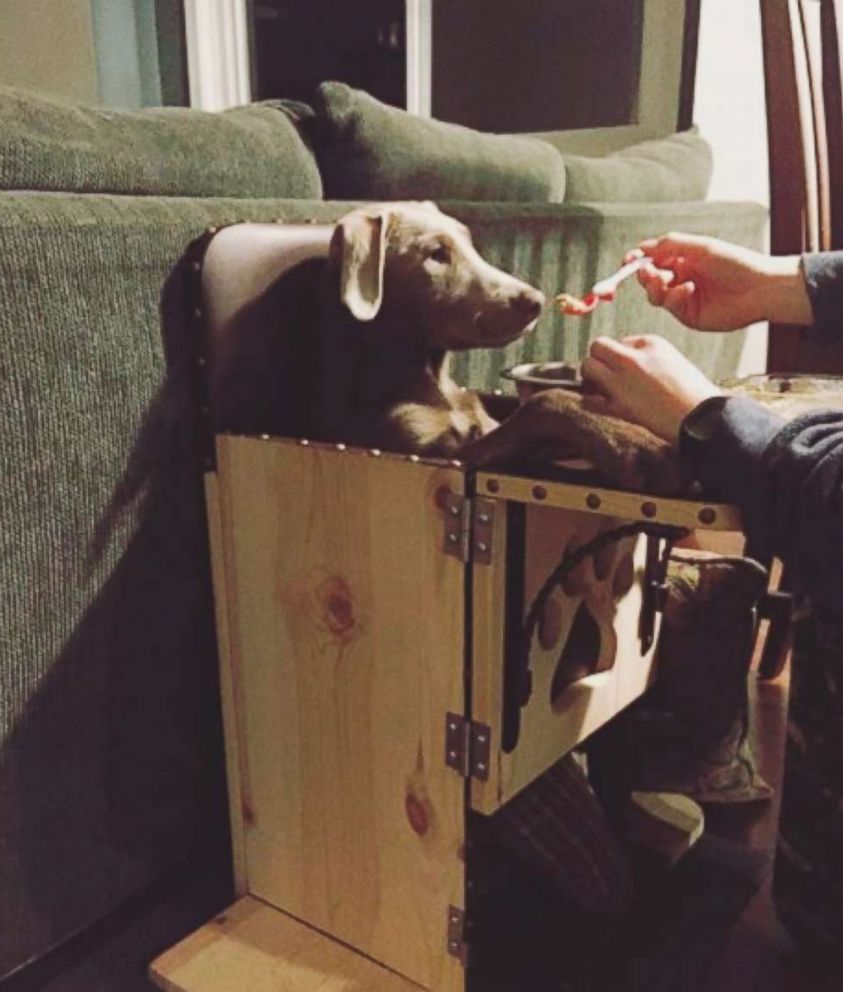
Although caring for Tink isn't easy, the Sullivans say their love for her makes it "completely worth it."
"Tink would be special to me if she were a regular old dog without megaesophagus, but [with her] having this disease, I get the opportunity to spend a lot of time with her," Cori Sullivan told ABC News.
"I can't imagine life without her by my side all the time. When you spend 60 to 80 minutes a day holding her after eating, makes it really hard not to love her."
